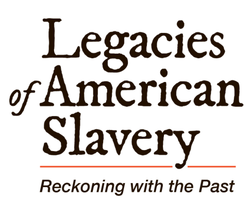The books in this collection were selected by faculty whose teaching and courses involve the medical humanities from their disciplinary lenses. There was an open call to faculty across the university to help with this project. Ultimately, we are are PWI, and the people who worked on this project are White. Since finalizing the project, we have engaged in discussion with some of our Black colleagues and colleagues of color about how to move this work forward.
This research guide was made in collaboration with Jesse McClanahan and Amanda Albert.
This work was made possible by a mini-grant from the Council of Independent Colleges Legacies of American Slavery: Reckoning with the Past Initiative.
